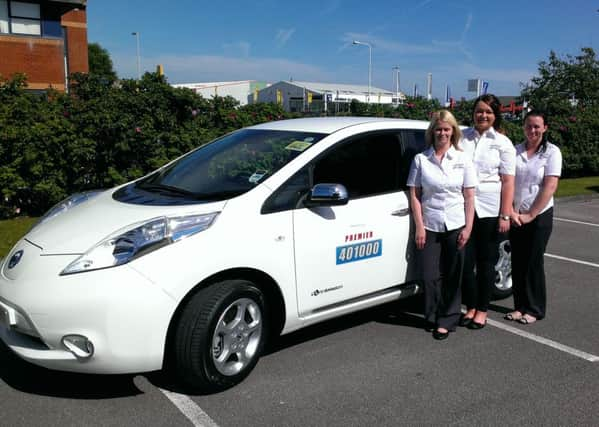Taxi charge with a difference


John Cutler, who owns the town’s Premier Cabs, is seeking planning permission from the council for eight ‘vehicle rapid charge units’ – two in each car park, including the council-owned Gynn Square Car Park.
The other car parks are Peter Street, Palatine Road and South Car Park on Bond Street, with each unit protected by 24-hour CCTV cameras.
Advertisement
Hide AdAdvertisement
Hide AdMr Cutler hopes to have 12 electric cabs on the roads by next January, after piloting the scheme earlier this year, and is ploughing around £500,000 in total into the project.
He said: “The four locations we have chosen are spread geographically across the town.
“They will take 20 to 25 minutes to charge up the vehicles to 80 per cent which will give them a full shift of driving.
“It will be really good for Blackpool – for sustainability and for reducing the carbon footprint.
Advertisement
Hide AdAdvertisement
Hide Ad“To start with, we will need exclusivity for our taxis to use the charging points, but in the future we envisage rolling it out for public usage. This is just phase one.”
Blackpool is one of the first towns in the country to trial electric taxis.
The Nissan Leaf cab, which was used in the pilot, can travel around 110 miles before it needs recharging.
As well as being more environmentally friendly, it means lower fuel costs, although the initial investment is about £20,000 per vehicle.
Advertisement
Hide AdAdvertisement
Hide AdWhile taxi drivers typically spend between £150 and £200 a week on fuel at the moment, it will only cost between £30 and £35 for electricity, and there is no road tax payable.
Currently, there are only a handful of charge points in Blackpool. A battery made up of 192 cells makes the vehicle 100 per cent electric with zero emissions.
Funds are being made available from government to pay for recharging sites, which would also be accessible for use by members of the public.
Energy used during braking puts power back into the battery.
The application will now go to town hall planners for consideration.